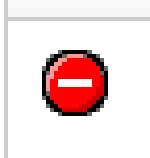
One of the many positive feedback I’ve collected.
eBay seems to be being a bit two-faced with their introduction to the feedback changes. The introduction to their changes reads:
The eBay Feedback system was designed to provide a simple, honest, accurate record of member experiences.
An honest record of member experiences. Not seller experiences, not buyer experiences. Member experiences. But, how can you say any system of feedback is fair when the first bullet point in the list is this gem:
Buyers will only be able to receive positive Feedback.
So, one side can say whatever it wants, and the other can reply with positive feedback. How is that an honest or accurate record of member experiences? Among businesses that facilitate trade between two parties, eBay has been rather unique in that it allows sellers to grade buyers. No more.
Shoestring theorists might want to check out the eBay forums. They are flooded with fears of buyers holding sellers hostage with feedback, competitors buying things from each other to damage each others’ credibility, and , somehow, this will cause the collapse of America as we know it. All of this is possible now (minus the America part), but rarely happens. I don’t think fear of getting a negative stops morons and scammers from misusing the feedback system. Sellers are using these conspiracy shoestring theories to avoid talking about their real fear: not being able to retaliate when they pick up a neg. I agree with them, I want feedback to be a two-way street. But I won’t hide behind fear-mongering to defend the current system.
Lets run through the rest of the list though, as there are a some good things in here.
Positive repeat customer Feedback will count (up to 1 Feedback from the same buyer per week.)
A needed change, as repeat customers are signs of healthy business practices.
Feedback more than 12-months old won’t count towards your Feedback percentage.
I’m split about this one. It’s good, because it provides sellers a reason to improve. Improving your track record on customer support can eventually wipe the slate clean as far as your feedback percentage is concerned. To some extent though, I think it waters down the value of a very high feedback score.
When a buyer doesn’t respond to the Unpaid Item (UPI) process the negative or neutral Feedback they have left for that transaction will be removed.
This isn’t a change and shouldn’t be in this list. To my knowledge, this has been policy for quite some time. I just realized I might have misread this one. Previously, the feedback rating for the transaction was removed (positive or negative), but the comment remained. Now, the entire thing will be removed as though it never existed. This still isn’t a big change as you had to really dig through feedback to find these kinds of things.
 One of the few negative feedback I’ve left.
One of the few negative feedback I’ve left.When a member is suspended, all their negative and neutral Feedback will be removed.
A minor, but good change. Unless eBay starts kicking accounts more often than it does now, I don’t think this will have a huge impact. It is an improvement over the existing policy where feedback was wiped out only if the user was less than…I think 90 days old.
Buyers must wait 3 days before leaving negative or neutral Feedback for sellers with an established track record, to encourage communication.
Three days, really. For many destinations, even if you ship the same day the order is made, you’ll be lucky if it gets there in three days. If you want to make this rule, shouldn’t it be at least five days to give a reasonable shot at the merchandise having arrived?
All Feedback must be left within 60 days (compared to 90 days today) of listing end to encourage timely Feedback and discourage abuse.
Meh. This isn’t a big change.
Buyers will be held more accountable when sellers report an unpaid item or commit other policy violations.
How? Like a number of things in this announcement, there are promises and threats of possible action, but no explanations or definitions. Given that I’ve seen shill bidders have their accounts re-instated, it’s hard for me to take this one seriously until I see it in action.
This is much like the changes to the fee structure, a series of small, beneficial changes offset by one massive negative change.
Tags: eBay · feedback · panic · shoestring theoriesNo Comments - Create a string

0 responses so far ↓
There are no comments yet...Create a string by filling out the form.